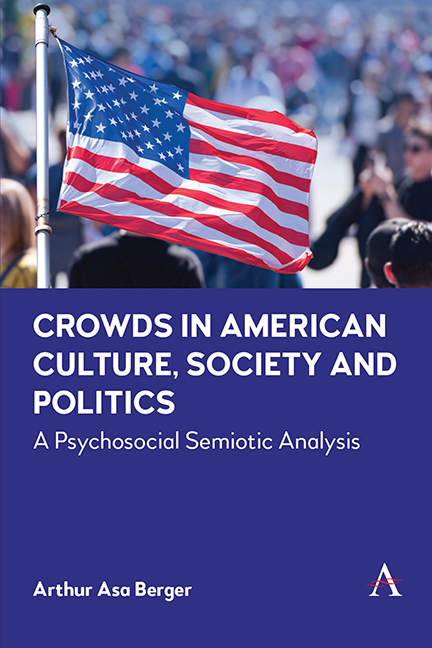2 - The Crowd
Published online by Cambridge University Press: 28 February 2024
Summary
Le Bon's book, The Crowd: A Study of the Popular Mind, was published in English in 1896 by Macmillan. I will use quotes from that edition in this book. In 1960, an edition of The Crowd was published by the Viking Press with a long introduction by Robert K. Merton, an important sociologist. I will discuss Merton's ideas at the end of this chapter.
Organization of The Crowd
Introduction:
The Era of Crowds
Book I
The Mind of Crowds
Chapter 1
General Characteristics of Crowds
Chapter 2
The Sentiments and Morality of Crowds
Chapter 3
The Ideas, Reasoning Power, and Imagination of Crowds
Chapter 4
A Religious Shape Assume by All the Convictions of Crowds
Book II
The Opinions and Beliefs of Crowds
Chapter 1
Remote Factors of the Opinions and Beliefs of Crowds
Chapter 2
The Immediate Factors of the Opinions of Crowds
Chapter 3
The Leaders of Crowds and Their Means of Persuasion
Chapter 4
Limitations of the Variability of the Beliefs and Opinions of Crowds
Book III
The Classification and Description of the Different Kinds of Crowds
Chapter 1
The Classification of Crowds
Chapter 2
Crowds Termed Criminal Crowds
Chapter 3
Criminal Juries
Chapter 4
Electoral Crowds
Chapter 5
Parliamentary Assemblies
We can see from this table of contents that Le Bon cast a wide net and there aren't many aspects of crowds that he did not consider. For my purposes, some material in his chapters is very important for us to consider and I offer this material in extended excerpts.
I will now discuss some of Le Bon's key ideas and quote some of the most important passages from the 1896 edition of his book.
Le Bon's Definition of Crowds
1.
Le Bon begins chapter 1 of Book I with his definition of crowds (1896: 1,2):
IN its ordinary sense the word “crowd” means a gathering of individuals of whatever nationality, profession, or sex, and whatever be the chances that have brought them together. From the psychological point of view, the expression “crowd” assumes quite a different signification. Under certain given circumstances, and only under those circumstances, an agglomeration of men presents new characteristics very different from those of the individuals composing it. The sentiments and ideas of all the persons in the gathering take one and the same direction, and their conscious personality vanishes.
- Type
- Chapter
- Information
- Crowds in American Culture, Society and PoliticsA Psychosocial Semiotic Analysis, pp. 5 - 30Publisher: Anthem PressPrint publication year: 2023

